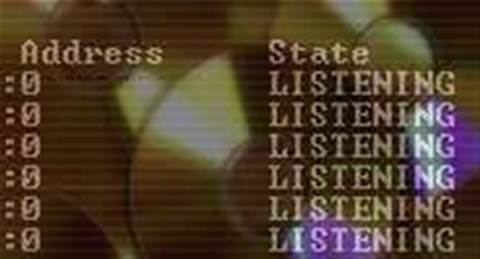Almost six-figure sums of copyright infringements alleged to have taken place on iiNet's network were "pings" by an investigator rather than downloads of a file, the ISP's general counsel told the court today.
In the first opportunity for iiNet to publicly state its case before the Federal Court, the ISP's general counsel Richard Cobden immediately sought to dampen the figures shared by the film industry yesterday.
Cobden invariably described the figures as "artificial", "inflated" and "highly exaggerated".
"With all due respect, there is a very clear attempt to colour allegations of authorisation with these very large numbers," he alleged.
"How many times does someone infringe by making a film available online? Our learned friends [of the plaintiff] say it's a repeated act, we submit it's one act and [a] continuing act."
The ISP alleged that each infringement counted by the film industry actually represented a "ping" made by an investigator to an iiNet user's computer requesting whether all or part of a copyrighted file could still be accessed through BitTorrent.
The pings were made by investigators regularly at unspecified time intervals, it was alleged.
They did not represent a separate internet user downloading or attempting to download the available file, iiNet's counsel alleged.
"It follows that if they'd sent out this call [ping] every minute rather than the selected period they could have easily created thousands of infringements," Cobden claimed.
As a further example, if a film was available via the BitTorrent protocol for three weeks - and the computer it was hosted on pinged by an investigator every second - it could rack up some 1.8 million "infringements", it was alleged.
The numbers of potential infringements presented by iiNet in evidence would be "in the hundreds" rather than the almost 100,000 figure reported yesterday.
But iiNet's intention was not to water down the impact of any alleged infringement, Cobden said.
"We're not suggesting to bring the figure down to a trifling number that your honour will say ‘That's simply not worth worrying about'," he alleged.
The ISP's counsel also said that "accepting the primary acts [of infringement] does not mean iiNet condones them."
He said the ISP did not know who was making the files available online.
"It's not a computer that makes something available online - it's a person," Cobden alleged.
"Someone's got to take some overt action. We don't know who [that] was."
iiNet said on Friday the infringer could "be the partner, child, flat-mate, employee or customer of the account holder" or even a stranger passing an account holder's unsecured wireless network.
Cobden told the court that "one cannot tell from [the identity of the account holder] the individual who did these [infringing] acts."




_(21).jpg&h=142&w=230&c=1&s=1)

.jpg&h=142&w=230&c=1&s=1)





.jpg&w=100&c=1&s=0)
_(8).jpg&w=100&c=1&s=0)











